The Cabin in the Woods (Drew Goddard,2012)

Slasher films, almost inevitably these days, run off the same tired formula. Itís to the point of being their very nature. But occasionally, weíll run into something smart and well-made, but itís become so sporadic and inconsistent that Iím surprised that the horror fanbase hasnít rebelled or caused mass anarchy--justifiably so, mind you. Joss Whedon and Drew Goddard take their mayhem to the screen and make The Cabin in the Woods crazy, entertaining and smart. It feels a lot like the complaints and gripes of every fan of the genre (and cinema, in general) is being funneled through their pens and onto paper. Instead of being a tirade, however, itís an extremely clever and thoughtful deconstruction of the entire genre--which isnít just limited to slasher flicks, mind you. Theyíve also somehow included Cthulhu mythos and an aspect of science-fiction. Nevertheless, Whedon and Goddard not only bring us a refreshing take on the horror genre, but raise interesting questions as to whether or not a character in a horror film can maintain a sense of individualism and be capable of making their own choices and still be a part of the genre. Not only is this a meta-film, but a funny one, at that, making it that much more endearing. Itís a must-see for horror fans.
In The Cabin in the Woods, Whedon and Goddard are working within a framework. Itís clear from the start. With that said, itís a genuine opportunity for breaking from the stereotypes and cliches while still making fun of them. We have the mandatory five friends (who all possess the stereotypes: the jock, the pothead, the Ďslutí, the heartbroken virgin, and the nice guy intellectual) who decide to take a trip out to a cabin and spend a weekend there. Weíve seen it all before. Where the film shines the most are the moments where weíre slightly unsure of whatís going on, or where this film is going--yet, we sort of have an idea. It may seem contradictory, and it is, but the uncertainty and certainty are both there. Like I mentioned before, this is a meta-film--our characters are burdened with choice with no knowledge of their future or even that theyíre being handed an opportunity to change their destiny. Without sounding like a philosophical essay, itís an engaging, yet unusual scenario.
It may seem near impossible to keep a film like this engaging and moving quickly, but Whedon and Goddard do so wonderfully. Goddard has done a surprising job of bringing the comically best out of their characters: Kristen Connolly plays the naive virgin; Chris Hemsworth the belligerent jock; Anna Hutchison the Ďslutí; Fran Kranz the pothead. They all manage to make their stereotypes hilarious. Fran Kranz (who worked with Whedon on Dollhouse), in particular, does a good job of overacting when necessary and even bringing out a sense of humanity towards the third act of the film. The script is, as always, taut and well-thought through. Whedon has always been a master of creating your three act structure scripts but somehow keeps a sense of surprise to his work. Strangely enough, he includes an element of science-fiction that harkens back to old horror. Itís a bizarre concept, but one that works exceedingly well. Drew Goddard, of course, can not be understated--his directorial hand is precise and thorough.
We as the audience demand certain traits of our horror, yet we still see the same slasher films over and over, despite our endless complaints. Itís a weird scenario, yet an accurate one that The Cabin in the Woods comments on. The Ancient Ones, in the film, could quite possibly represent our desire to see the virgin sacrifice, to see the jock get his comeuppance, or to see the necessary amount of blood and gore. Perhaps the film represents even more than a commentary on the stereotypes and cliches of the horror genre, but the human desire of seeing what we think those we disapprove of deserve. Itís an endless cycle of Ďwhat ifísí, though thatís precisely what gives it life. Who is watching who and so on and so forth, ad infinitum. Those looking for a few scares will likely get them, as well as a few viciously violent scenes that seem far worse than what weíre used to--they seem more real, more disturbing. Itís a weird movie, suffice it to say, that feels more complicated in retrospect. Everyone here has done some great work and it pays off very, very well. The Cabin in the Woods, Iíll reiterate, should be seen and hopefully, youíll find as much there as I did.

Slasher films, almost inevitably these days, run off the same tired formula. Itís to the point of being their very nature. But occasionally, weíll run into something smart and well-made, but itís become so sporadic and inconsistent that Iím surprised that the horror fanbase hasnít rebelled or caused mass anarchy--justifiably so, mind you. Joss Whedon and Drew Goddard take their mayhem to the screen and make The Cabin in the Woods crazy, entertaining and smart. It feels a lot like the complaints and gripes of every fan of the genre (and cinema, in general) is being funneled through their pens and onto paper. Instead of being a tirade, however, itís an extremely clever and thoughtful deconstruction of the entire genre--which isnít just limited to slasher flicks, mind you. Theyíve also somehow included Cthulhu mythos and an aspect of science-fiction. Nevertheless, Whedon and Goddard not only bring us a refreshing take on the horror genre, but raise interesting questions as to whether or not a character in a horror film can maintain a sense of individualism and be capable of making their own choices and still be a part of the genre. Not only is this a meta-film, but a funny one, at that, making it that much more endearing. Itís a must-see for horror fans.
In The Cabin in the Woods, Whedon and Goddard are working within a framework. Itís clear from the start. With that said, itís a genuine opportunity for breaking from the stereotypes and cliches while still making fun of them. We have the mandatory five friends (who all possess the stereotypes: the jock, the pothead, the Ďslutí, the heartbroken virgin, and the nice guy intellectual) who decide to take a trip out to a cabin and spend a weekend there. Weíve seen it all before. Where the film shines the most are the moments where weíre slightly unsure of whatís going on, or where this film is going--yet, we sort of have an idea. It may seem contradictory, and it is, but the uncertainty and certainty are both there. Like I mentioned before, this is a meta-film--our characters are burdened with choice with no knowledge of their future or even that theyíre being handed an opportunity to change their destiny. Without sounding like a philosophical essay, itís an engaging, yet unusual scenario.
It may seem near impossible to keep a film like this engaging and moving quickly, but Whedon and Goddard do so wonderfully. Goddard has done a surprising job of bringing the comically best out of their characters: Kristen Connolly plays the naive virgin; Chris Hemsworth the belligerent jock; Anna Hutchison the Ďslutí; Fran Kranz the pothead. They all manage to make their stereotypes hilarious. Fran Kranz (who worked with Whedon on Dollhouse), in particular, does a good job of overacting when necessary and even bringing out a sense of humanity towards the third act of the film. The script is, as always, taut and well-thought through. Whedon has always been a master of creating your three act structure scripts but somehow keeps a sense of surprise to his work. Strangely enough, he includes an element of science-fiction that harkens back to old horror. Itís a bizarre concept, but one that works exceedingly well. Drew Goddard, of course, can not be understated--his directorial hand is precise and thorough.
We as the audience demand certain traits of our horror, yet we still see the same slasher films over and over, despite our endless complaints. Itís a weird scenario, yet an accurate one that The Cabin in the Woods comments on. The Ancient Ones, in the film, could quite possibly represent our desire to see the virgin sacrifice, to see the jock get his comeuppance, or to see the necessary amount of blood and gore. Perhaps the film represents even more than a commentary on the stereotypes and cliches of the horror genre, but the human desire of seeing what we think those we disapprove of deserve. Itís an endless cycle of Ďwhat ifísí, though thatís precisely what gives it life. Who is watching who and so on and so forth, ad infinitum. Those looking for a few scares will likely get them, as well as a few viciously violent scenes that seem far worse than what weíre used to--they seem more real, more disturbing. Itís a weird movie, suffice it to say, that feels more complicated in retrospect. Everyone here has done some great work and it pays off very, very well. The Cabin in the Woods, Iíll reiterate, should be seen and hopefully, youíll find as much there as I did.
Last edited by Justin; 06-13-12 at 12:06 AM.


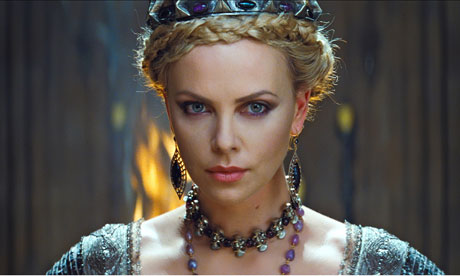

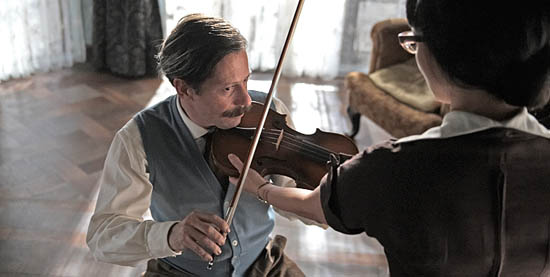


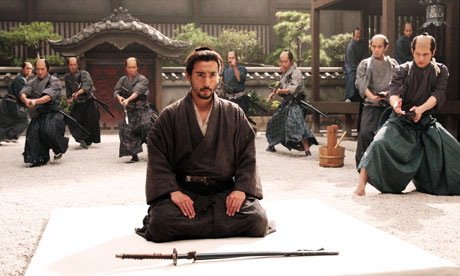

 And great review of it.
And great review of it.
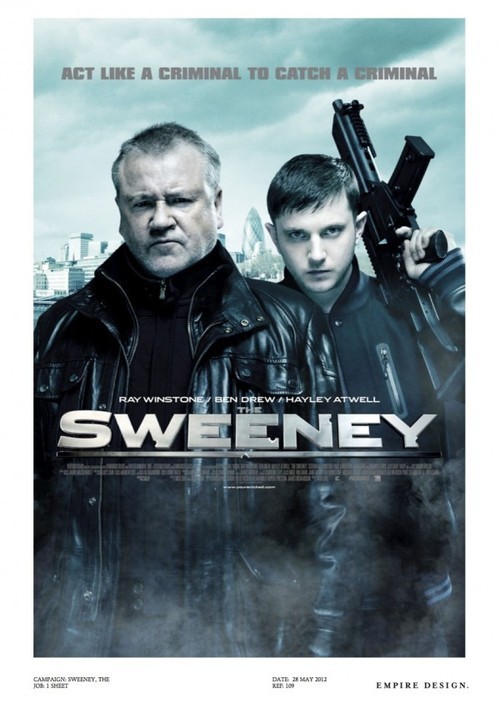
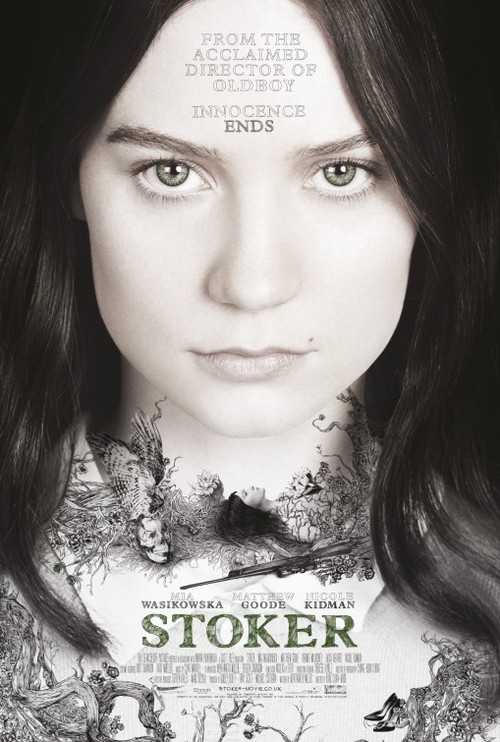
 Where you been?
Where you been?